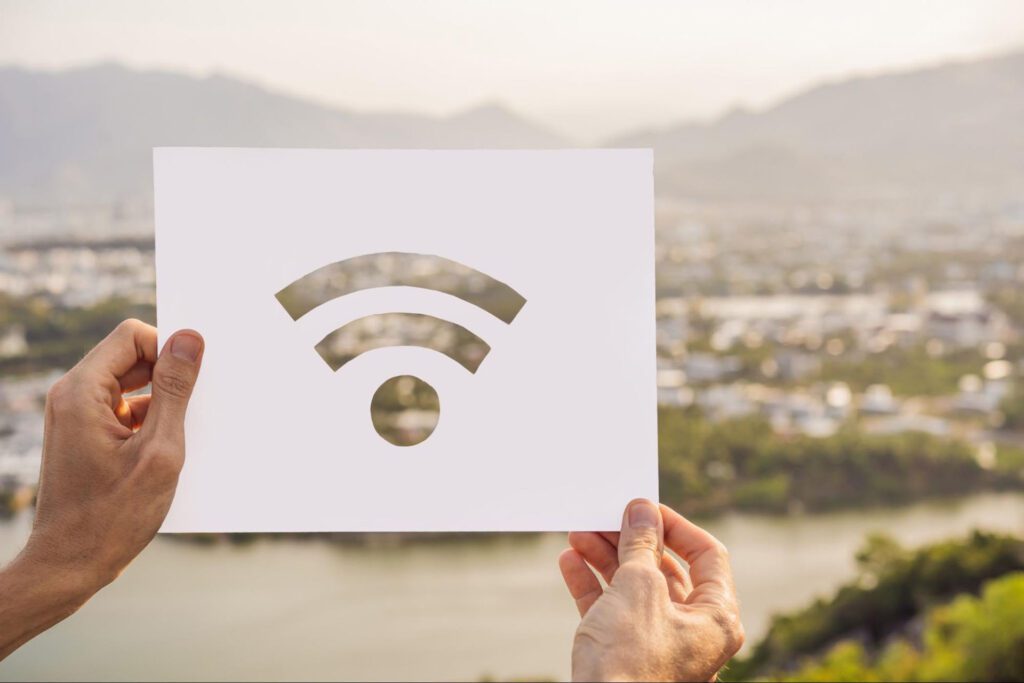In the digital age, a reliable and expansive Wi-Fi network is essential for seamless connectivity. Wi-Fi extenders have become popular solutions for enhancing home internet coverage, but like any technology, they come with both advantages and drawbacks.
What Are Wi-Fi Extenders?
In our ever-connected world, a robust Wi-Fi network is indispensable. However, many homes face the challenge of Wi-Fi dead zones, hindering seamless connectivity. Enter Wi-Fi extenders – compact devices designed to amplify your existing network’s reach. These extenders act as signal boosters, bridging gaps and eliminating dead spots, ensuring a consistent and reliable connection throughout your home. In this age of digital demands, understanding the benefits and limitations of Wi-Fi extenders is key to optimizing your home network and ensuring that every corner becomes a high-speed hub for your devices.
The Pros of Wi-Fi Extenders
Wi-Fi extenders can be an excellent solution when your internet doesn’t cover your entire property. If you need your Wi-Fi connection to cover a larger area, an extender can help fill in the gaps, ensuring you can access the internet anywhere in your home.
1. Improved Coverage Range
Wi-Fi extenders, also known as boosters or repeaters, significantly expand the coverage range of your existing Wi-Fi network. They amplify the signal, reaching areas that were previously dead zones, ensuring a consistent connection throughout your home.
2. Cost-Effective Solution
Compared to investing in a more powerful router or a mesh Wi-Fi system, Wi-Fi extenders are generally a more budget-friendly option. They provide a cost-effective means of enhancing coverage without needing a complete overhaul of your network infrastructure.
3. Easy Installation
Most Wi-Fi extenders are designed for easy plug-and-play installation. Users don’t need advanced technical knowledge to set them up. This user-friendly approach makes extenders accessible for individuals looking to enhance their Wi-Fi without professional assistance.
4. Compatibility With Existing Equipment
Wi-Fi extenders are generally compatible with a wide range of routers, making them a versatile solution for homes with various networking setups. This compatibility ensures that users can integrate extenders seamlessly into their existing network.
The Cons of Wi-Fi Extenders
Although Wi-Fi extenders can solve the problem of needing your internet to cover a wider area, they can introduce new problems. Extending your connection could lead to slower service or a reduced signal quality. Here are some of the potential issues to consider.
1. Speed Reduction
While extenders improve coverage, they can lead to a reduction in internet speed. Extenders create a secondary network, and devices connected to them may experience slower speeds than those directly connected to the main router.
2. Network Congestion
In areas where multiple extenders overlap, network congestion can occur. The lack of coordination between extenders can result in interference, leading to a less efficient and reliable Wi-Fi network.
3. Signal Quality
Wi-Fi extenders may not maintain the same signal quality as the original router. Factors such as walls, floors, and other obstacles can still impact the signal, and extenders might struggle to provide the same high-quality connection.
4. Limited Bandwidth Allocation
Wi-Fi extenders essentially share the available bandwidth with the main router. This means that as more devices connect to the extender, the available bandwidth per device decreases, potentially leading to slower internet speeds.

Tips for Maximizing Wi-Fi Extender Effectiveness
If you are looking to maximize your Wi-Fi extender’s effectiveness, we recommend the following:
1. Strategic Placement
Optimal placement of Wi-Fi extenders is crucial. Position them in areas where the original signal is still strong to ensure the extender can effectively boost the coverage without compromising speed.
2. Consider Mesh Wi-Fi Systems
For those seeking a more robust and integrated solution, mesh Wi-Fi systems might be a better option. While typically more expensive, mesh systems offer seamless connectivity and eliminate some of the drawbacks associated with traditional extenders.
3. Regular Network Maintenance
Performing regular network maintenance, including updating firmware and checking for interference, can help mitigate some of the issues associated with Wi-Fi extenders. This ensures a smoother and more reliable network experience.

Balancing Pros and Cons for Optimal Connectivity
In the realm of Wi-Fi technology, extenders play a crucial role in expanding home internet coverage. However, users must weigh the pros and cons to make an informed decision based on their specific needs and circumstances. Whether opting for the budget-friendly solution of Wi-Fi extenders or investing in more sophisticated mesh systems, the goal is to strike a balance between coverage, speed, and reliability, ensuring a seamless online experience throughout the home.
If you’re interested in Wi-Fi extenders and other options to boost your internet connection, take a look at our SmarterHome.ai blog! We offer internet service and help our clients ensure their homes have top-notch internet connectivity.


